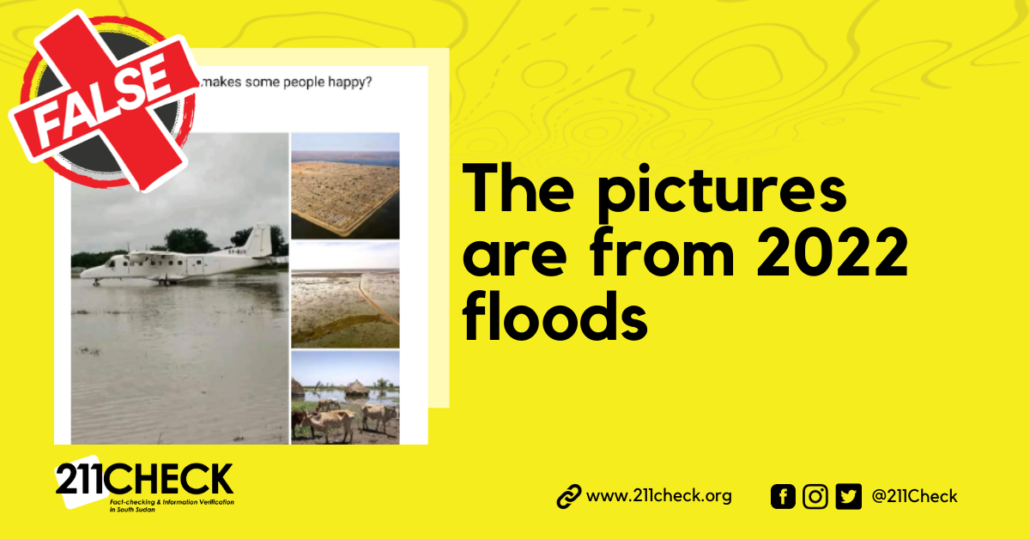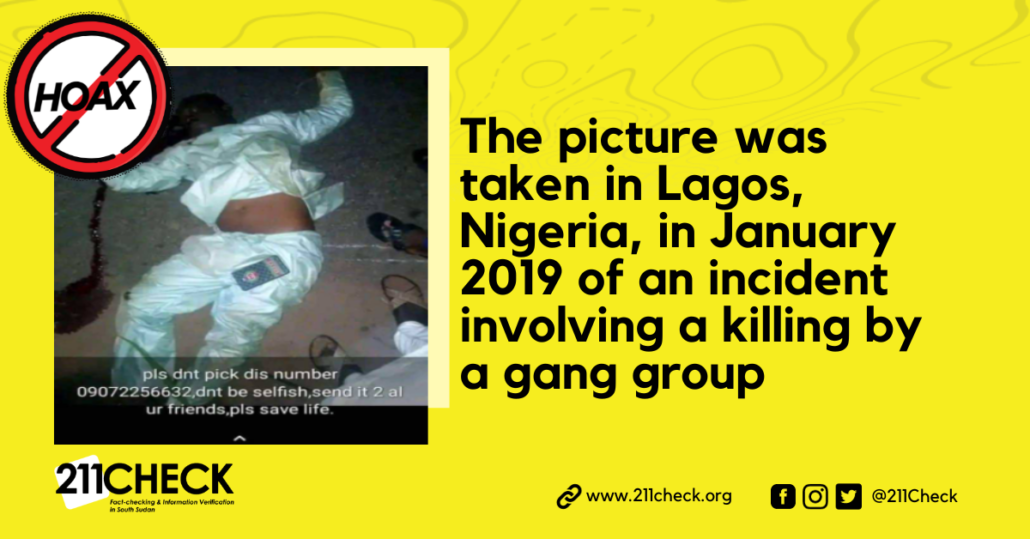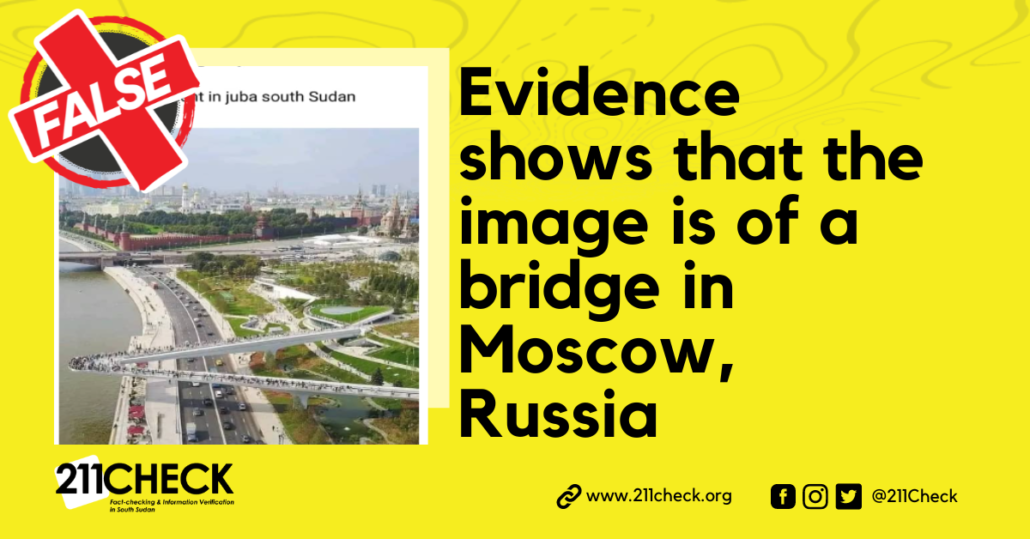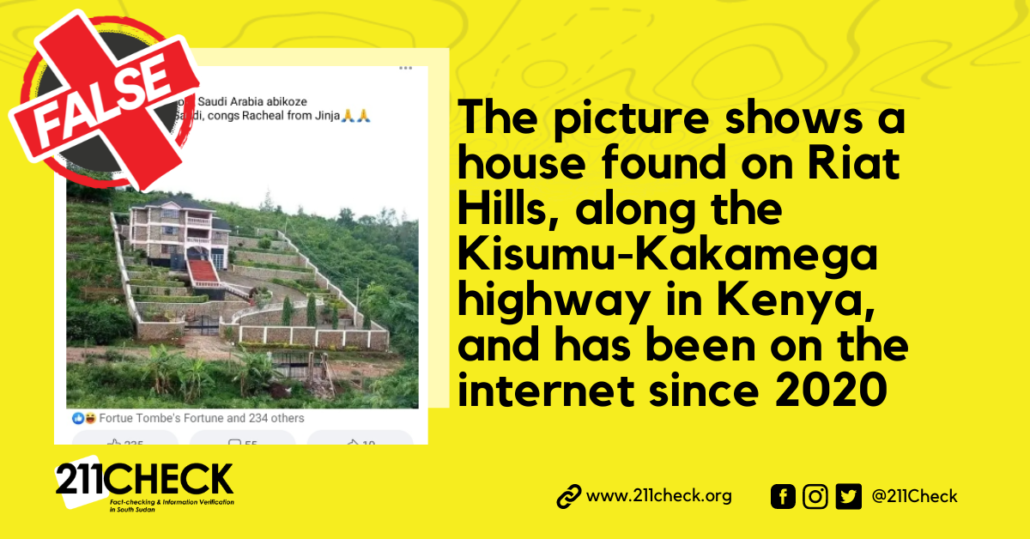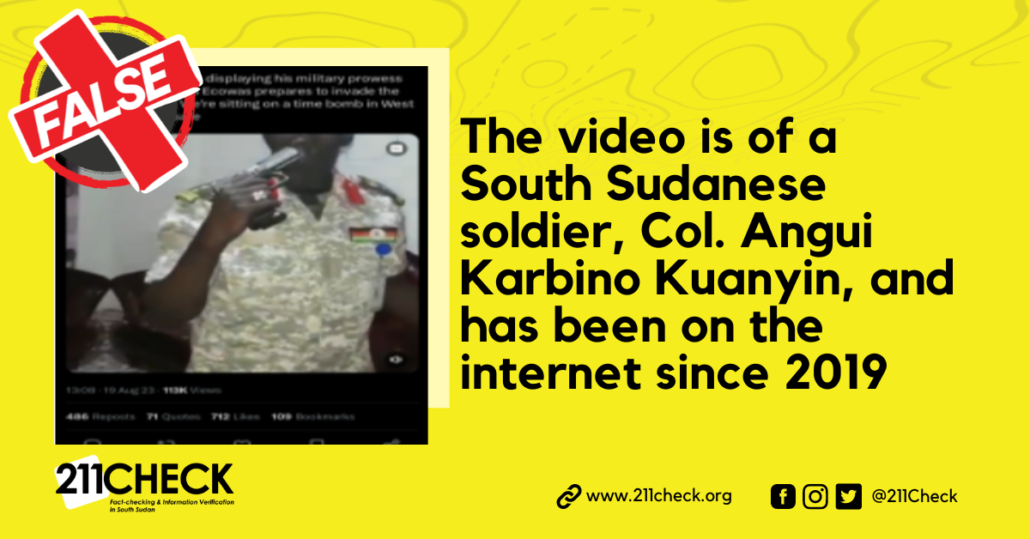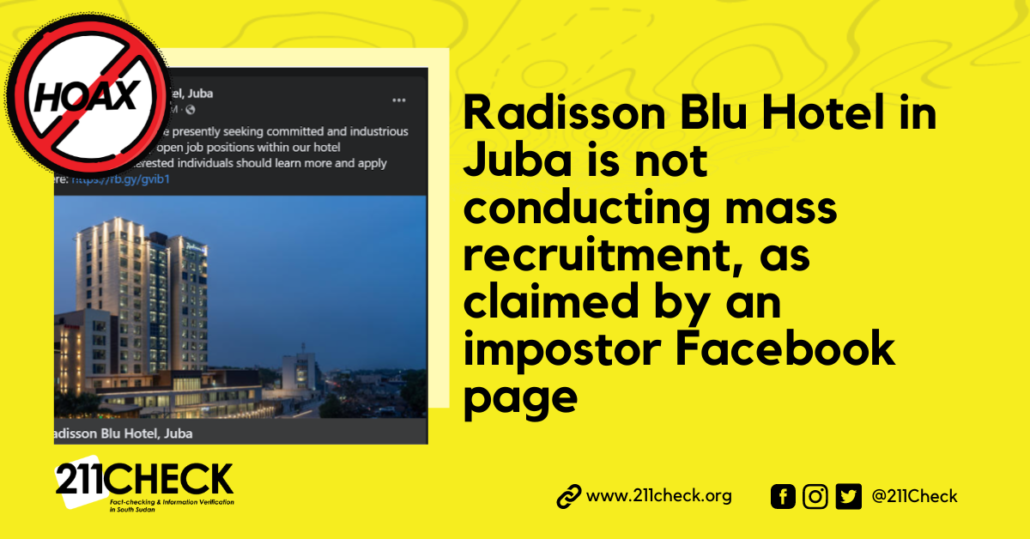Fact-check: These pictures of flooding in Unity State are old
The pictures are from 2022 floods.
Writer: Abraham Athian
A Facebook post by Bentiu TV allegedly showing photos of a recent flooding incident in Unity State is false.
The post was published with the caption, “These pictures really make some people happy?” on September 9, 2023.
A screenshot of the Facebook post by Bentiu TV
The post drew the attention of many of the page’s audience, some of whom thought the pictures were of a flooding report in September 2023, garnering 129 likes, 34 comments, and six shares, which made it relevant enough to be checked.
Claim Verification:
A Google search engine shows that a picture of a plane on water has been online since 2022. South Sudan Eagle Media posted it on X (formerly Twitter). A post read, “The images of Bentiu and Rukona on Unity State floods”. On October 9, 2022.
A screenshot of a post from South Sudan Eagle Media
The same picture is also on the New Hope Foundation website. Moreover, the other pictures were also posted on the UNHCR website in July 2023, clearly showing that these pictures were collected from different pages.
Conclusion:
211 Check finds a Facebook post allegedly showing pictures of a recent flooding incident in Unity State false. The pictures are from 2022 floods.
A publication under 211 Check’s ‘Fact-check for a Pay Initiative with Support from the International Fact-checking Network through the BUILD grant.
To ensure accuracy and transparency, we at 211 Check welcome corrections from our readers. If you spot an error in this article, please request a correction using this form. Our team will review your request and make the necessary corrections immediately, if any.
It’s vital to fight misinformation and disinformation in the media by avoiding fake news. Don’t share content you’re uncertain about. False information can harm and mislead people, risking their lives—Fact-check before sharing. For more details, visit https://211check.org/ or message us on WhatsApp at +211 917 298 255. #FactsMatter

